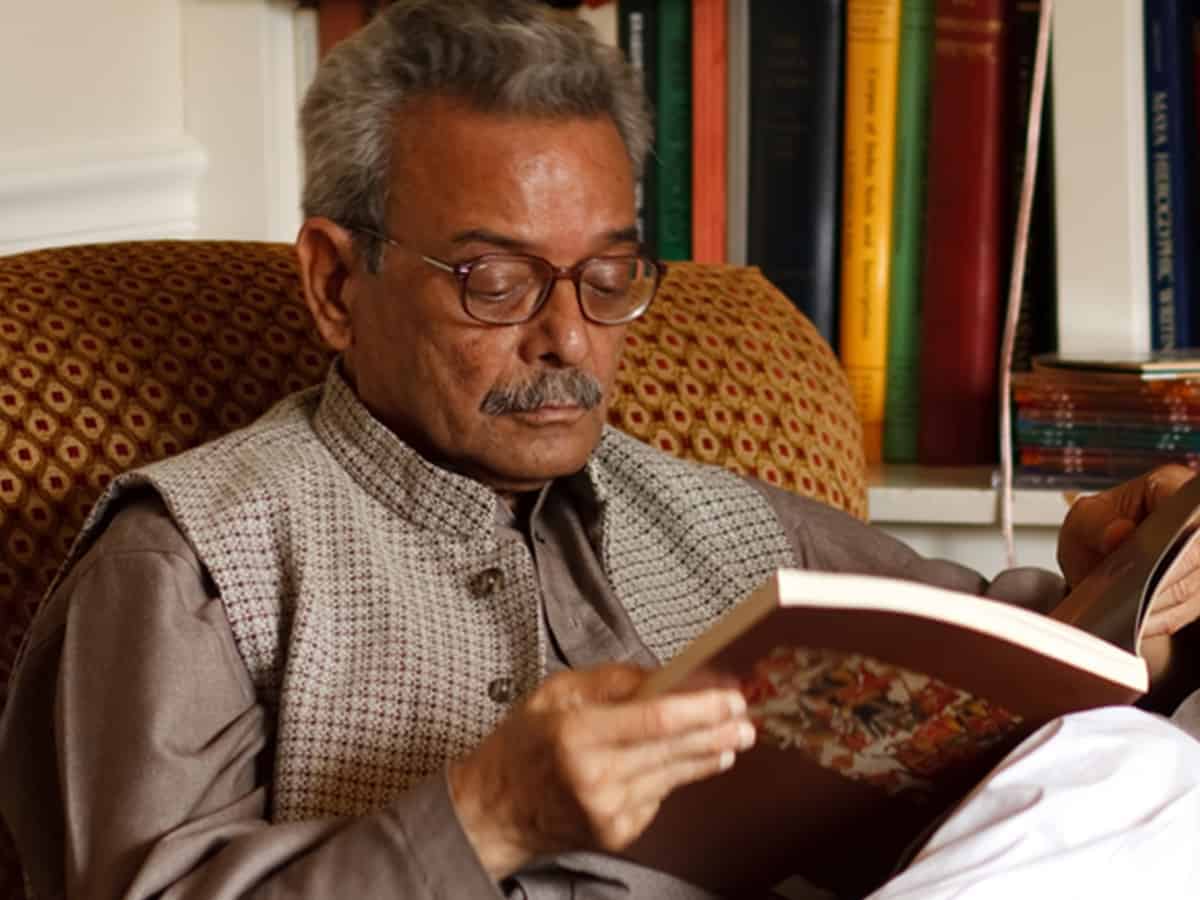Written in Urdu by Sibte Hasan Naqvi
Translated by Satyanarayana Yellapantula
Shamsur Rahman Faruqi is perhaps, the last of the titans who strode the Urdu literary stage, making his powerful voice heard across genres–criticism, short story, poetry, fiction, lexicology and literary history. There is little doubt that Shamsur Rahman Faruqi shaped the consciousness of several generations and inspired students of Urdu to adopt a modern and creative approach to Urdu literature. No wonder the world of Urdu letters feels orphaned at his sad passing away.
Shamsur Rahman Faruqi opened the eyes of Urdu lovers to the many-faceted world inhabited by Mir Taqui Mir’s poetry, in his stupendous critical work in three volumes, “Shair-e-shor angez.” When his critical gaze fell on Ghalib’s work, Faruqi, with characteristic freshness of approach, unravelled many of the complexities in the great poet’s work, in his magnum opus, Tafheem-e-Ghalib. Faruqi, in a way that no one had, threw open the doors to Ghalib’s strikingly new expressions, his imaginative use of language, his unconventional phrases and layered language, laden with Persianized diction and relative inaccessibility of meaning.
Shamsur Rahman Faruqi, to his credit, also made the redoubtable Josh Malihabadi and the complex Firaq Gorakhpuri accessible to readers. The world of Urdu looked at Iqbal’s work from a new perspective, thanks to Faruqi. It was on account of Shamsur Rahman Faruqi that lovers of Urdu literature could re-evaluate the greatness of Akbar Allahabadi. He was not merely a literary critic of poetry, but a fine poet himself. Faruqi was also a gifted writer of fiction—a novelist and an author of short stories.
Faruqi’s prodigious stamina led him to explore new vistas. One of his most outstanding literary accomplishments was the rediscovery of the classical form of story-telling or dastaangoi. He scoured libraries across the world to compile 42 volumes of Dastaan-e-Amir Hamza. This monumental literary feat not only kindled interest in the extinct art of dastaangoi, but traced the origins of Urdu fiction and the poetic elements of dastaan. It is no exaggeration to state that Faruqi’s singular achievement in reviving interest in this forgotten art of story-telling, has no parallel in the history of Urdu literature.
When Faruqi turned his attention to lexicology, the result was LuGhaat-e-roz_marra and Tazmeen-ul-luGhaat. While the former focussed on the correctness of gender, as also pronunciation, the latter unravelled the complexities of classical language associated with dastaangoi.
One of the many literary achievements of Shamsur Rahman Faruqi lay in his bringing to light several aspects of the early epochs of Urdu literature in his monumental work, Urdu ka ibtidaayi zamaana. Anyone interested in something as basic as the etymology of the word ‘Urdu’ should read this book. Faruqi’s epic treatise, shair aur nasr sets to rest a debate that had raged for long among critics of earlier times on the finer distinction in the language of the two genres.
Faruqi’s elucidation of metaphor and other literary devices in Urdu poetry have few parallels. We find this in his approach to the literary works of all the masters—Ghalib, Mir, Iqbal, Josh, Zauq, Firaq and others.
Faruqi gave Urdu literary world a priceless asset in the form of the journal of which he was the founder-editor, ShabKhoon.
A student of English literature, Faruqi rose to become a literary colossus in the Urdu world straddling all genres with peerless dominance. Though he was a civil servant belonging to the Central Postal Services, he contributed more to Urdu literature than many academics added up. A classicist like TS Eliot, Faruqi believed that any modern approach must be anchored in an understanding of literary tradition. He writes:
New experiments are viable only when one has a complete understanding of tradition. Unless one does not know from what one is seeking a departure, what sort of departure from tradition can one make? A departure from tradition is not synonymous with severance…. an informed departure from tradition itself becomes a part of literary tradition in later ages.
A literary theorist who introduced Modernism, Urdu will deeply miss the multi-hued brilliance of Shamsur Rehman Faruqi’s rich imagination, his candour and forthrightness, his breadth of vision and the sweep of his literary insights.

